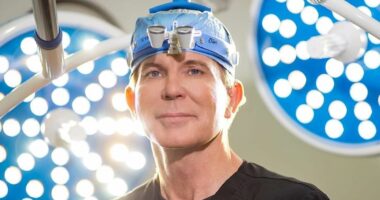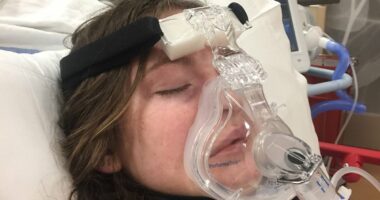Share this @internewscast.com

It’s not always easy to recognise the symptoms of depression (stock image) (Image: Getty Images/Westend61)
The third Monday in January has become infamous as ‘Blue Monday’, also known as the most depressing day of the year. The fun of the festive season is in the rear view mirror, the weather is terrible, it gets dark before most of us have even left work, and many of us are feeling the financial strain from Christmas, so it’s no wonder so many are feeling down.
The third Monday of January has gained notoriety as ‘Blue Monday,’ often labeled as the most depressing day of the year. With the holiday season a distant memory, gloomy weather prevailing, and darkness setting in before most workdays conclude, it’s easy to understand why many feel downcast. Adding to this gloom is the financial pressure lingering from holiday spending, leaving a significant number of people in low spirits.
The concept of Blue Monday originated in 2004, reportedly as a marketing ploy by a travel agency to boost holiday bookings. Regardless of its origins, the reality remains that this time of year can be particularly challenging for many. Recognizing the signs of depression in oneself or loved ones, however, is not always straightforward. Professor Ahmed Hankir, a consultant psychiatrist who uses social media to disseminate crucial mental health information, has highlighted three early indicators of depression.
Reduced energy and motivation
With a following of over 426,000 on TikTok, Professor Hankir shared a video detailing what he refers to as the three “early warning signs” of depression. He advises that anyone noticing one or more of these symptoms should consider consulting a healthcare professional.
“Depression can sap all the energy from your body,” Professor Hankir explained. “It’s not just about feeling physically exhausted with minimal effort; it also encompasses emotional and mental fatigue.”
Loss of interest, pleasure, or joy in life
He noted, “Individuals experiencing depression often struggle to find the motivation to get out of bed, sometimes spending entire days lying down without engaging in any activity.”
Professor Hankir added, “A person suffering from depression may lose interest in activities they once enjoyed, including their favorite hobbies. This phenomenon is known as anhedonia.”
Inability to concentrate
Depression can also affect concentration, Ahmed explained. “Depressed persons can have difficulty concentrating,” he said. “So much so that they can seem absent or spaced out.
“They can struggle with following a conversation because they are seemingly lost in the vortices of their depressed minds. In fact, the concentration problems in persons with depression can be so severe you might think they may have developed dementia, when in fact they haven’t.
“The term for this is pseudo-dementia. Once you treat the underlying depression, usually with a course of anti-depressants, the concentration problems go away.”
Concluding, he said: “Just because you may experience one or all of these symptoms, it doesn’t necessarily mean that you are developing depression.”
What to do if you think you have depression
The first course of action is to speak to your GP. They will be able to determine the best course of action for you. This may involve talking therapy, medication, other treatments, or a combination of these.
There are also a number of charities which can support people dealing with mental health problems. To find a service in your area visit hubofhope.co.uk
If you or anyone else is in danger, call 999 immediately or go to A&E.
Anyone with thoughts of suicide can contact the Samaritans free of charge, 24 hours a day, on 116 123.















